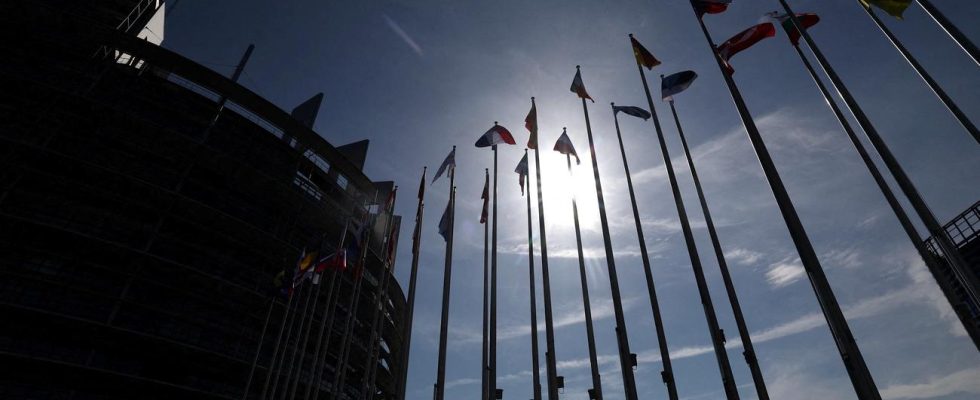The European Parliament has approved new rules for budget deficits and national debt. The majority of MPs voted for a reform package that would give highly indebted countries more scope for investment.
At the same time, however, the new rules are intended to force states to set high standards Debts to dismantle faster. The EU member states had been negotiating the new rules for months.
In principle, under the new regulations in the EU, the debt level of a member state must not exceed 60 percent of economic output. In addition, the general government financing deficit – i.e. the gap between the income and expenditure of the public budget, which is primarily covered by loans – should be kept below three percent of gross domestic product (GDP).
Indebted countries are given more time to reduce their debts
In addition, protective measures are planned: highly indebted countries with a deficit of more than 90 percent of GDP should have to reduce their debt ratio by one percentage point annually, and countries with debt levels between 60 and 90 percent by 0.5 percentage points.
With the reform, however, governments are given more leeway and are supposed to present their own plans on how they want to reduce their debt in the coming years. They get up to seven years to do this, significantly more than before. Countries that are heavily indebted, such as Greece, Italy, Spain and France, could benefit from this.
EPP welcomes new rules – Greens express criticism
CSU MP Markus Ferber, economic policy spokesman for the EPP parliamentary group European Parliament, welcomed the acceptance. “With the new EU debt rules, we are returning to a responsible EU budget policy.” The new set of rules creates more clarity and puts the economic and monetary union on a solid foundation.
Criticism came from the Greens. “Instead of adding together debt sustainability, sustainable finances and sufficient space for investment in the green transformation, the new rules, despite the necessary caution when it comes to counter-financing, rely on debt reduction that does not meet the needs of this time,” said MEP Henrike Hahn after the vote.
The head of the EPP group, Manfred Weber, opposed the Greens’ position. They were playing with fire. “They have learned nothing from the euro crisis.” It is not enough to just talk pro-European in Sunday speeches; political action is crucial.
EU states still have to confirm new rules
Representatives of the European Parliament and the governments of the member states agreed on the controversial compromise at the beginning of February after a long debate. After the vote in the plenary session of the European Parliament, the EU states also have to confirm the new rules. This is usually a formality and is scheduled for next week.
Critics have long viewed the current set of rules governing the debts of EU countries as too complicated and too strict. That’s why it should be reformed. Anyone who exceeds the upper limits must expect criminal debt proceedings, so-called deficit proceedings. A country must then take countermeasures to reduce debt and deficit. Recently, however, the criminal proceedings were suspended due to the corona crisis and the consequences of the Russian attack on Ukraine.
The European Parliament has approved new rules for budget deficits and national debt. The majority of MPs voted for a reform package that would give highly indebted countries more scope for investment.
At the same time, however, the new rules are intended to force states to set high standards Debts to dismantle faster. The EU member states had been negotiating the new rules for months.
In principle, under the new regulations in the EU, the debt level of a member state must not exceed 60 percent of economic output. In addition, the general government financing deficit – i.e. the gap between the income and expenditure of the public budget, which is primarily covered by loans – should be kept below three percent of gross domestic product (GDP).

